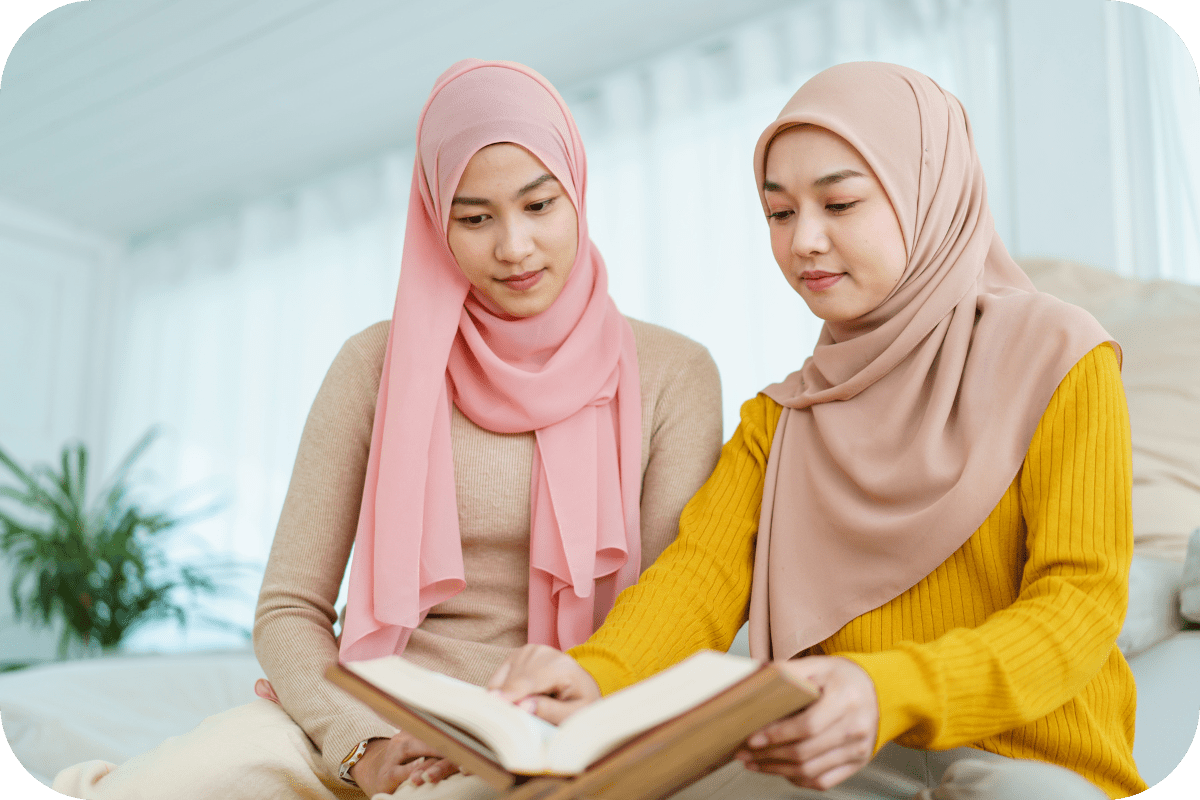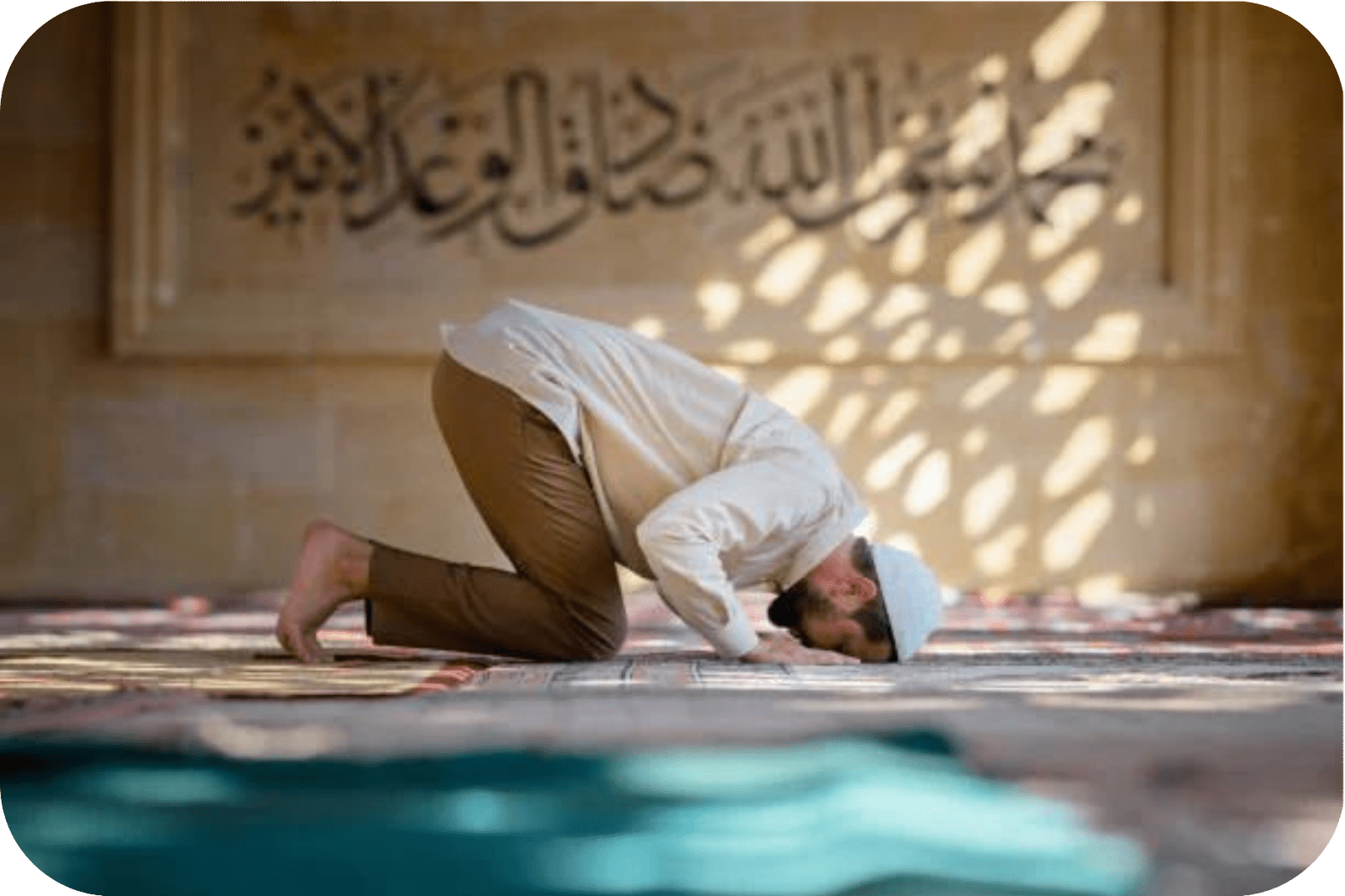The Status of Women in Islam
The Status of Women in Islam

Women's status in Islam has often been a subject of debate, with misconceptions and stereotypes clouding the reality. In this blog post, we will explore the empowering nature of Islam for women, shining a light on the different aspects that contribute to their status and highlighting the value and significance given to women in Islam.
As we delve into it, explore our curated collection that pays tribute to the strength, wisdom, and resilience of women, discover meaningful products that uplift and empower, reflecting the elevated status Islam bestows upon women.
![]()
Also check our recent article where we showcased a list of the most prominent women who have made a lasting impact in the history of Islam.
Pre-Islamic Challenges: A Dark Period for Women
To understand the position of women in Islam, it is crucial to examine the historical context before Islam. This era was marked by profound challenges for women, characterised by a host of oppressive practices and limitations, including:
1. Limited Rights
In pre-Islamic era, women faced severe restrictions on their rights, both legally and socially. Their autonomy was curtailed, hindering their active participation in various aspects of life.
Legal frameworks systematically disadvantaged women, leaving them vulnerable to widespread discrimination and exploitation.
Additionally, cultural and societal norms enforced oppressive practices, perpetuating a cycle of inequality and constraining women's freedom.
2. Dehumanizing Treatment and Gender Bias
Shockingly, women were often treated as mere property rather than individuals with inherent worth. This degrading treatment reduced their social standing to that of possessions, devoid of agency or the ability to shape their own destinies.
The era witnessed a tragic manifestation of gender bias through the widespread practice of infanticide, particularly targeting female infants.
This grim reality reflected a deep-seated devaluation of female life, establishing a dire starting point for girls even before they could navigate the challenges of the world.
3. Lack of Agency and Systemic Injustices
Women lacked agency in decision-making processes at both familial and societal levels. Their voices were systematically silenced, perpetuating a cycle of gender-based inequality that denied them the opportunity to actively contribute to shaping their communities.
Injustices against women were pervasive, embedded in societal norms and legal structures alike. Mistreatment of women was not isolated but systemic, creating an environment where discrimination was not only tolerated but normalised.
These challenges collectively set the stage for a much-needed reform, a transformation that would be ushered in with the advent of Islam.
Islamic Empowerment: A Positive Turnaround
In contrast to the constraints and injustices faced during the pre-Islamic era, the emergence of Islamic teachings brought about a positive paradigm shift, emphasising the equal spiritual standing of women before Allah.
1. Spiritual aspect
In Islam, the spiritual equality of men and women is emphasised by the Qur'an. Both genders are regarded equally in the eyes of God regarding their rights and responsibilities. The Quran explicitly states that every soul, regardless of gender, will be held accountable for its deeds:
“Every soul will be detained for what it has done”
(Surah Al-Muddaththir, verse 38)
Women, like men, are encouraged to engage in acts of righteousness and faith, promising them a reward according to their actions as mentioned in the Quran:
“Whoever does good, whether male or female, and is a believer, We will surely bless them with a good life, and We will certainly reward them according to the best of their deeds.”
(Surah An-Nahl, verse 97)
2. Social aspect
a) As a child and an adolescent
The Quran condemns the practice of female infanticide, emphasizing the value of female children as mentioned in the Quran:
“And when the buried alive infant-girl shall be asked, For what crime was she killed.”
(Surah At-Takwir, verses 8-9)
Islam stands against societal norms that devalue girls, urging kindness and equitable treatment. The Prophet Muhammad, through his teachings, emphasised the importance of supporting and treating daughters with respect. He stated:
“Whosoever has a daughter and he does not bury her alive, does not insult her, and does not favour his son over her, God will enter him into Paradise”
(Ibn Hanbal, 1957)
b) As a wife
Islamic teachings recognize marriage as a shared commitment, emphasising love, mercy, and mutual consent. The Qur'an highlighted the rights of women in choosing their spouses and their right to fair and just treatment within marriage:
“When you divorce women and they have almost reached the end of their waiting period, either retain them honourably or let them go honourably. But do not retain them only to harm them or to take advantage of them”
(Surah Al-Baqarah, verse 231)
The Prophet (phub)'s sayings underscore the significance of kind treatment and companionship in marital relationships. He said:
“The most perfect believers are the best in conduct, and the best of you are those who are best to their wives”
(Ibn-Hanbal, 7396)
c) As a mother
Islam places a high value on the role of mothers, considering kindness to parents as next to the worship of God. The Qur'an and the Prophet's teachings stress the importance of treating mothers with utmost respect, declaring that paradise lies at the feet of mothers:
“And We have commanded people to ˹honour˺ their parents. Their mothers bore them through hardship upon hardship, and their weaning takes two years. So be grateful to Me and your parents. To Me is the final return.”
(Surah Luqman, verse 4)
A famous saying of the Prophet is:
“Paradise is at the feet of mothers”
(Al'Nisa'I, Ibn Majah)
3. Economic aspect
Islam grants women economic rights, including the right to independent ownership, a right often denied to women in pre-Islamic and even later societies. Women are entitled to their money, real estate, and other properties, regardless of their marital status:
“For men there is a share in what their parents and close relatives leave, and for women there is a share in what their parents and close relatives leave—whether it is little or much. These are obligatory shares.”
(Surah An-Nisa, verse 7)
Islam recognizes women's right to seek employment, aligning with the understanding that their primary role as mothers and wives is sacred. In matters of inheritance, Islamic law ensures justice and compassion for women, providing them with a share equivalent to their male counterparts.
The financial responsibilities of men and women are balanced, considering the physiological and psychological differences between them.
4. Political aspect
Islam affirms the political rights of women, allowing them the right of election, nomination to political offices, and participation in public affairs.
While women have historically engaged in serious discussions and even debated with the Prophet Muhammad (peace be upon him) himself, certain limitations are placed on specific political roles, acknowledging the physiological and psychological differences between men and women.
It is noteworthy that Islam encourages mutual consultation in decision-making, irrespective of gender.
To delve further into the remarkable contributions of Muslim women, explore our blog post on the famous Muslim women in Islamic history to discover the impactful and leading roles they played, underscoring the richness and diversity of women's involvement in political and societal spheres.
Common misconceptions and misinterpretations
Unfortunately, misconceptions and misinterpretations often lead to a distorted view of women's rights in Islam. Many cultural practices falsely attributed to Islam perpetuate oppression or inequality.
It is crucial to separate cultural norms from the teachings of Islam. Islam is a diverse religion, and interpretations may vary. Acknowledging this diversity within the Muslim community is vital in understanding the reality of women's rights in Islam.
Conclusion
The status of women in Islam is often misunderstood or misrepresented. This blog post aimed to shed light on the empowering aspects of Islam concerning women, by recognising the historical context and Islamic teachings.
It is through knowledge, understanding, and compassion that we can work towards a more inclusive and equitable society for all.
Buying at Riwaya
On this Women's National Day, explore our collection tailored for women, featuring health and beauty essentials that promote self-care and well-being. Discover thoughtful gifts to celebrate the women in your life, along with a selection of inspiring Islamic books that offer wisdom and guidance.
At Riwaya we are dedicated to offer a wide range of top quality products that honour the beauty and depth of Islamic tradition.
![]()
Selling at Riwaya
Attention, sellers! Riwaya invites you to showcase your items on our platform. Whether it's health and beauty essentials, thoughtful gifts, Islamic books or else, join us in honouring and uplifting women through your creations.
Join us in fostering a community that appreciates and promotes the richness of Islamic culture and traditions.
FAQs
Q1: What is the role of women in Islam?
In Islam, women play vital roles, sharing equal spiritual status with men. They are honoured in family life as mothers, daughters, sisters, and wives. Encouraged to contribute actively to society, Islamic teachings emphasise their unique strengths and dignity, granting specific rights and responsibilities aligned with Quranic principles and Hadith. For instance, Fatimah, the daughter of the Prophet Muhammad (peace be upon him), is revered for her role as a devoted daughter, mother, and a symbol of piety.
Q2: How are women treated in Islamic societies?
Women are treated with respect, dignity, and fairness. Islam emphasises the equality and worth of both men and women. Islamic principles discourage any form of harm or injustice, fostering an environment where women can actively participate in various aspects of society while maintaining their rights and dignity. Notably, Umm Salamah, one of the Prophet's wives, was a respected advisor and played a significant role in community affairs, showcasing the esteem with which women are held in Islamic societies.
Q3: Does Islam promote gender equality?
Islam upholds spiritual equality between men and women, highlighting their shared worth and dignity. While recognizing nuanced differences in rights and duties, these stem from acknowledging unique roles in family and society. Islam promotes fairness, justice, and mutual respect, fostering a harmonious society where both genders can thrive. As an illustration, the Prophet's daughter, Aisha, was not only a scholar but also a prominent political figure, demonstrating the multifaceted roles women can assume within the Islamic framework.
Q4: What rights do Muslim women have in Islam?
Islam recognized and granted women fundamental rights over 1400 years ago. This includes education, property ownership, work, and active participation in society. Islam opposes forced marriages, allowing women the choice in selecting a spouse. Legal rights in marriage, divorce, and finance further establish a comprehensive framework that respects and empowers women.
Q5: Are Muslim women allowed to work and pursue education?
Absolutely. Islam not only allows but encourages women to pursue education and work. Women in Islam have the right to seek knowledge and engage in various fields of education. Additionally, they are encouraged to contribute to society through lawful professions, reflecting the religion's support for the personal and intellectual development of women. For instance, Khadijah, the Prophet Muhammad's (peace be upon him) first wife, was a renowned businesswoman, exemplifying the empowerment of women in economic endeavours.



